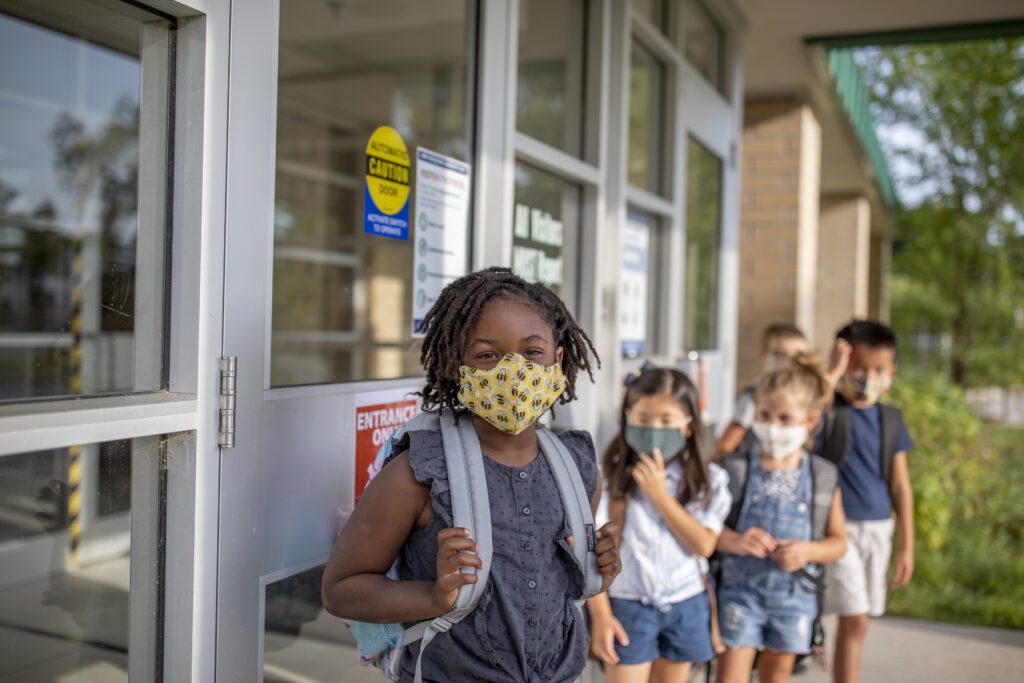Disclosure :: this post is sponsored by The Baton Rouge Clinic.
 As summer break ends, most parents are busy preparing their children (and themselves) for the start of a new school year. While this transition seems to always sneak up on even the most well-planned families, the first day of school doesn’t have to be stressful and chaotic. The Baton Rouge Clinic is here to help.
As summer break ends, most parents are busy preparing their children (and themselves) for the start of a new school year. While this transition seems to always sneak up on even the most well-planned families, the first day of school doesn’t have to be stressful and chaotic. The Baton Rouge Clinic is here to help.
So why is it so important that our children return to in-person learning? School isn’t just important from an educational standpoint, but an emotional, social, and nutritional standpoint as well. Part of childhood development hinges on learning through social interactions, and studies have shown that isolation of children can have detrimental effects on their long-term psychological well-being. In addition to this, thousands of children in the Baton Rouge area receive one, if not two, meals per day through their school attendance.
This school year may require more preparation to get into school mode, but these tips can help!
Be prepared by finding out from your child’s school what their safety plans are and whether COVID-19 vaccinations will be required for specific age groups, so that you can prepare kids for what to expect when they get to school.
Validate fears. It’s normal for people to be anxious about resuming regular activities like going back to school. Although you might feel some relief that you and your child will be getting back into a routine, recognize that it might not be easy at first for them – or for you. Your pediatrician can give you guidance on ways to best support your child and help them build resilience. Some children or adolescents may need more time and space to express their feelings. Some may do better with gradual conversations and other activities besides talking, such as painting or drawing to express themselves and manage stress. Others might be more comfortable with direct conversations or activities. They may need to talk to a trusted adult about how to keep up social connections safely, or their feelings of boredom, loss, and even guilt.
Go shopping. This year, more than ever, kids will likely enjoy the tradition of buying school supplies and a few new outfits for the school year. Allow them to pick out a mask in their favorite color or print to make wearing it more fun! They might even enjoy grocery shopping to select some foods that will make brown-bagging it more exciting.
Provide structure. Throughout the pandemic and during the summer, sleep cycles and mealtimes may not have been as structured as usual. Don’t wait until the night before school starts to get your child back into a school routine. Gradually adapt to earlier bedtimes and earlier wake times so kids are ready to start school well rested.
Model positivity. Ask your child open-ended, positive questions about how they’re feeling about school. Instead of “Are you nervous?” try something like “What are you most excited about when school starts?” or “Which of your friends will you be happiest to see?” Parents set the tone in the household. Expressing extreme doom or fear can affect your children. It can be challenging to stay positive, especially if you’re struggling with your own stress. But try to stay positive and relay consistent messages that a brighter future lies ahead. It helps to set aside time to take care of yourself when possible, and seek the support you may need for your own mental health. Practicing mindfulness, focusing on the present moment, yoga or stretching can help the entire family build coping skills. Build in down time for the whole family to connect and relax, enjoying a nap, movie time or simply spending time together.
Observe carefully. Watch for signs that your child is struggling. Symptoms of stress include irritability, self-isolation, angry outbursts, changes in appetite and disrupted sleep patterns. Stay in touch with your child’s teacher, in case anything is happening at school that you should be aware of. If you’re unable to manage your child’s anxiety, get help from a school counselor or a mental health professional. Keep lines of communication open between you and your child, and don’t hesitate to talk with your pediatrician about ways to help maintain your family’s mental health during this difficult time.
Be patient. The pandemic disrupted everyone’s routines and made many people – especially kids – question their safety and security. It may take a little time for people to get comfortable going back to the way things used to be and that’s okay.



















